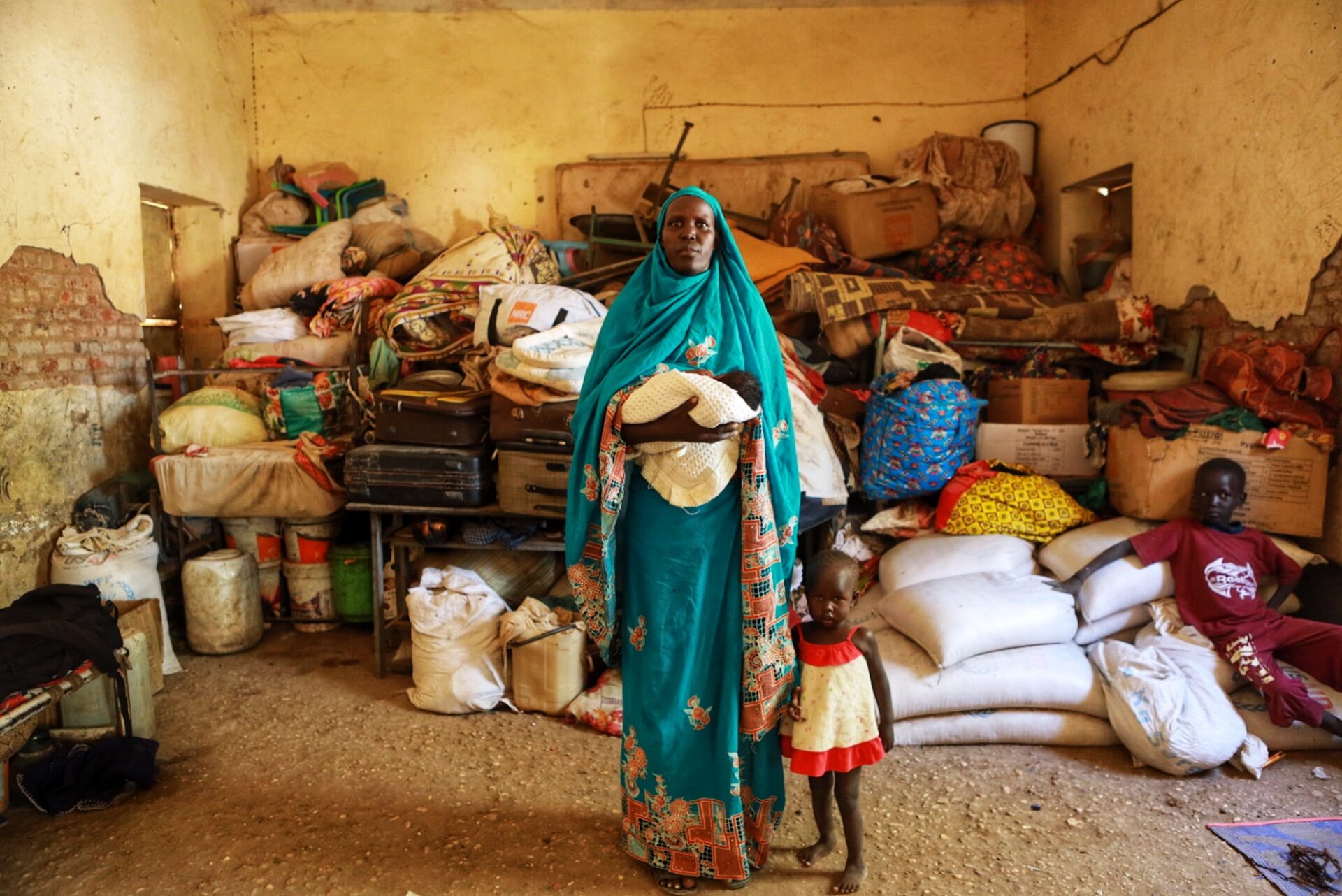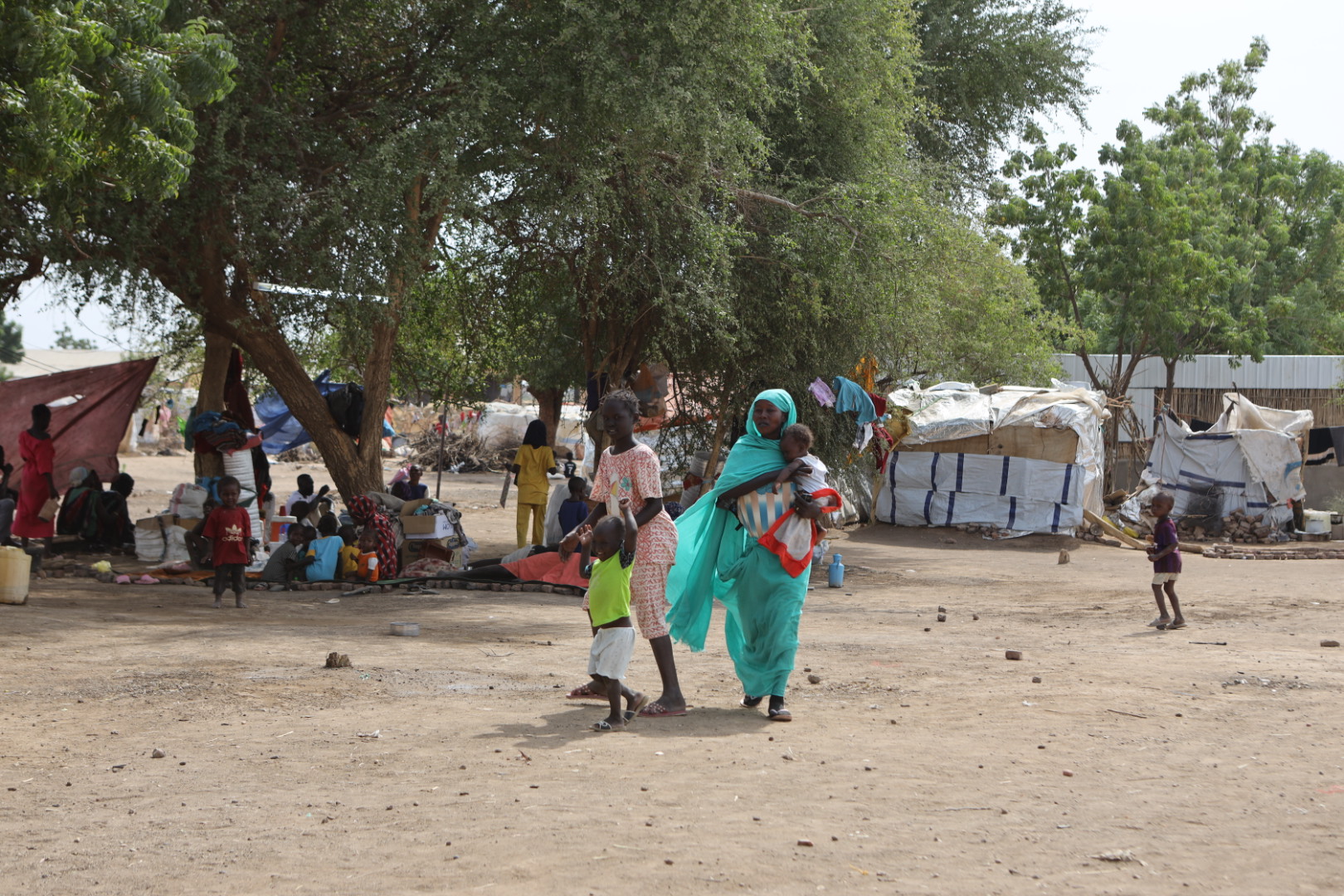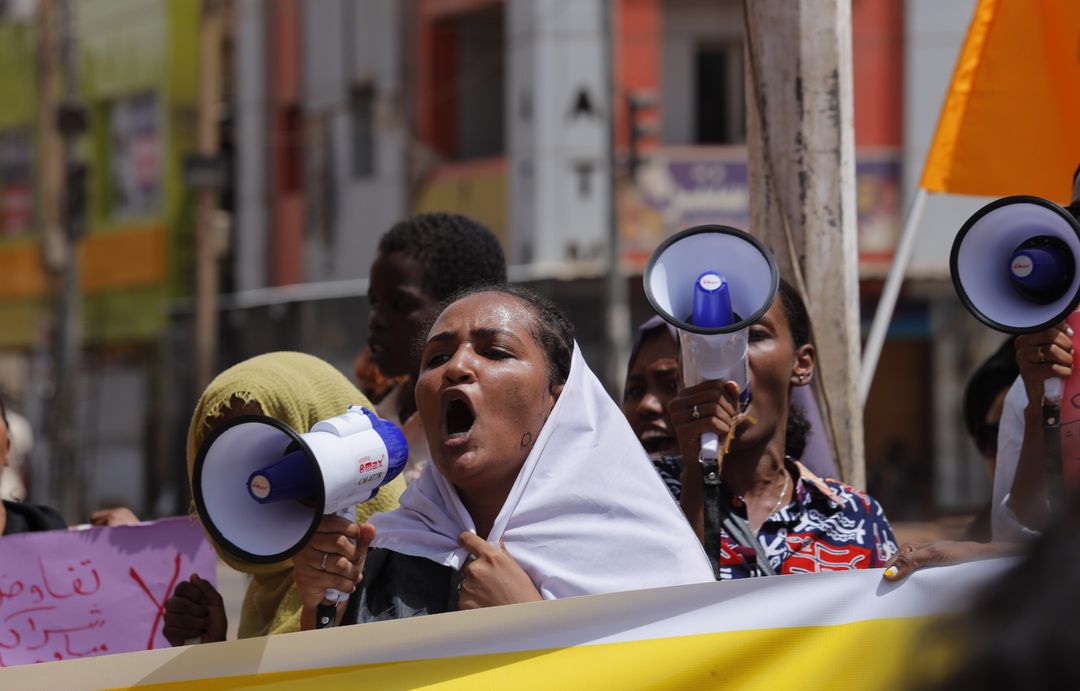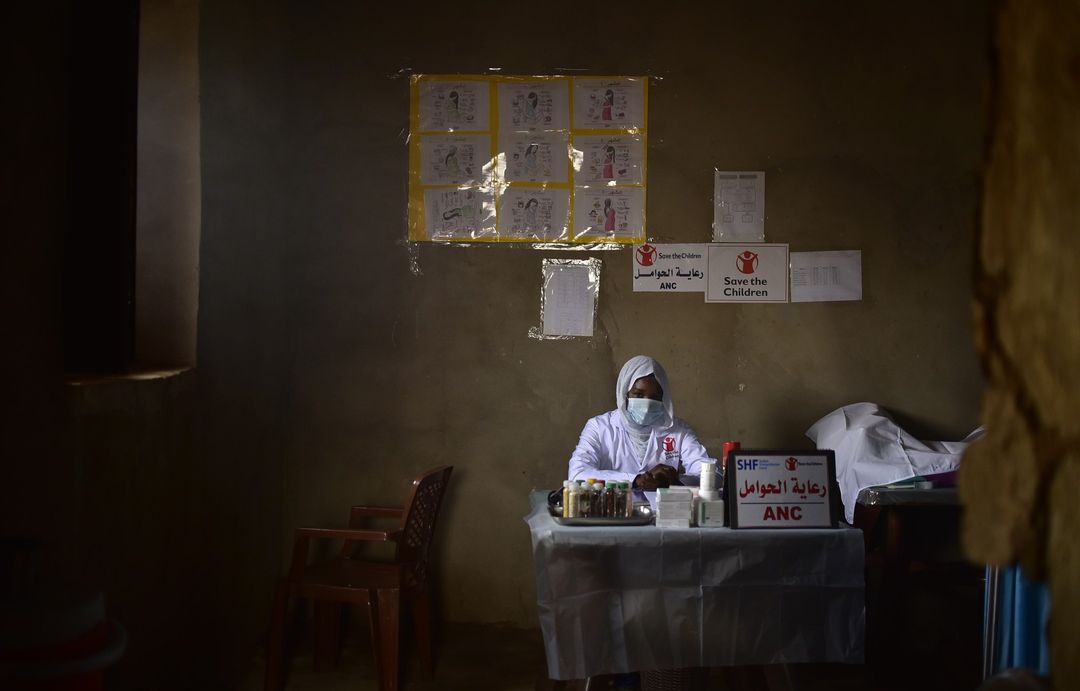This isn’t the first time we are witnessing Sudanese women mobilizing and organizing at the grassroots level and with neighborhood committees. Women human rights defenders (WHRDs) in and outside of Sudan have fought at the forefront of the revolution, leading protests and demanding equal representation since the 2019 political transition negotiations following the fall of Omar El-Bashir.
Mutual aid movements as such centrally organize because people come into them to get their immediate needs met and want to help others facing disastrous living conditions as a result of war or climate catastrophes. When they are a part of these efforts like the SSC, they can build a shared analysis asking questions like: “Why don’t we have food?” ; “Why don’t we have shelter?”; and “What systems are in place that we want to get to the root causes of?”
Abductions and Sexual Slavery
In a report published by the Center for Violence of Women and Girls, the head of the center, Sulima Ishag, stated that their researchers are reporting widespread cases of abductions and sexual slavery by RSF members in South Darfur, North Darfur, and Khartoum.
In the email interview, SSC co-organizers Elmardi and Safiya Abbadi, also based out of Canada, wrote that RSF members are “using rape and sexual attacks on women and girls.” They have also heard “stories of girls being forced into marriage by the militia, or kidnapped.” On social media outlets, they have seen posts women and girls in Sudan about where to obtain Plan B pills or rape kits. Other posts describe “support from women who are victims and survivors of sexual violence by the militia.”
Armed groups have targeted and demolished hospitals and clinics, leaving them acutely under-resourced and understaffed. Amid these attacks, mutual aid networks like the SSC have stepped up. Such groups share online resources and available medication for women who have no functional medical support if they are pregnant or require urgent post-rape healing and care.
Elmardi, Abbadi, and Abdelmoneim have all denounced the mainstream media’s failure to adequately cover the crisis in Sudan, further pushing activists on a global and localized scale to co-organize and lead their own innovative responses from care systems and solidarity networks to solidarity funds, that is gender-just and centered on people and environments.
Sudanese activists, in other words, have had a rude awakening from the “global apathy” towards Sudan. Their blighted hopes, they no longer trust in any form of support for the Sudanese community.
“There is a level of global apathy that allows this suffering to continue without enough outrage or action — and as [a] byproduct, little aid and support has been able to reach those within war-torn Sudan,” Elmardi and Abbadi said, explaining that “the limited coverage can be oversimplified at times, which can distort the reality on the ground and perpetuate misconceptions.”
“Inherent Bias”
In a recent interview with Al Jazeera, Yassmin Al-Magied, a Sudanese-Australian author and activist, similarly reproached the international media’s radio silence, or selective coverage of the war, which has left many Sudanese people feeling betrayed and abandoned. Abdelmoneim echoed Al-Magied and many other activists’ sentiments, suggesting that “it’s a combination of conflict fatigue and inherent bias and racism; it’s another conflict in Africa. And even though [onlookers and non-Sudanese viewers] may understand but [they] don’t accept it”.
As part of a newly organized collective, Elmardi and Abbadi said that apart from meeting material needs through fundraising, it is important for them to provide “political education around the context of the war, the humanitarian situation, and ways that Sudanese diaspora and allies can support the work towards an end to the war and adequate response to the scale of the crisis”. Once again, the locally led mutual aid responders are also standing in to report and document on social media and in student circles where the international media has fallen short..
What Can the World Do?
Despite the mass disillusionment in traditional and patriarchal political parties, Sudanese women are organizing much more effectively, leading to a global shift in solidarity engagements within and between feminist spaces.
“The warring factions have retaliated against a lot of civilians that have been raising awareness around the atrocities, or have been community organizing, and involved in activism,” Elmardi and Safiya said.
As a call to action, they said, “it’s important that we all make a solid effort in ensuring that it’s not in vain by staying informed, amplifying voices, and donating to the many grassroot efforts and mutual aid funds supporting people in Sudan.”
























